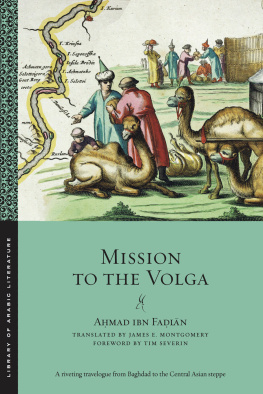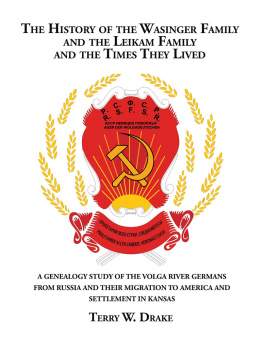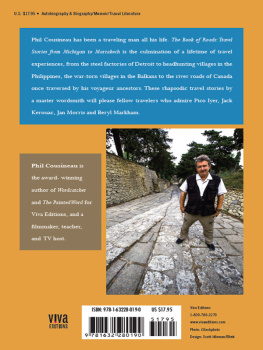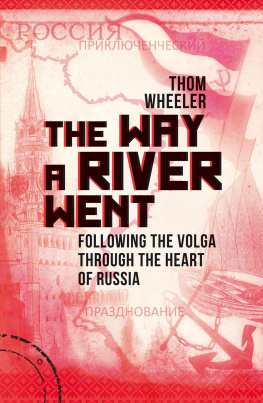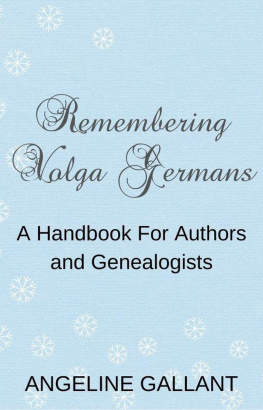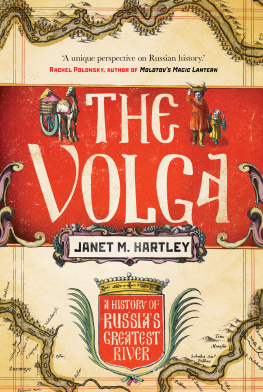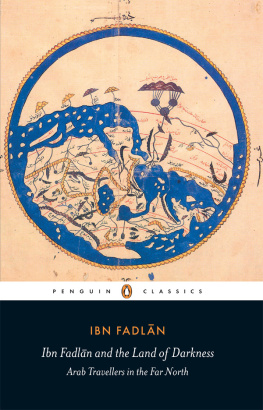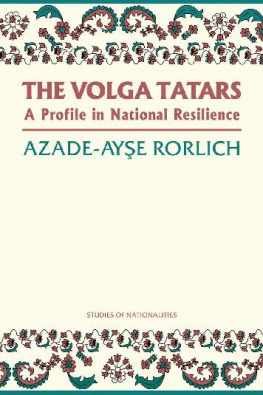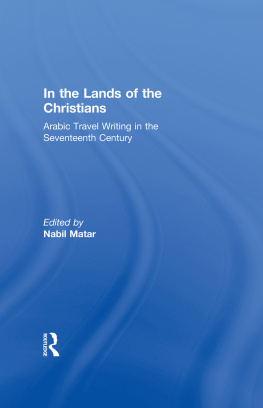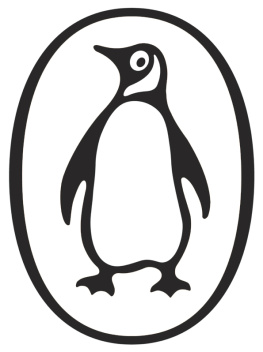
MISSION TO THE VOLGA
LIBRARY OF ARABIC LITERATURE
EDITORIAL BOARD
GENERAL EDITOR
Philip F. Kennedy, New York University
EXECUTIVE EDITORS
James E. Montgomery, University of Cambridge
Shawkat M. Toorawa, Yale University
EDITORS
Sean Anthony, The Ohio State University
Julia Bray, University of Oxford
Michael Cooperson, University of California, Los Angeles
Joseph E. Lowry, University of Pennsylvania
Maurice Pomerantz, New York University Abu Dhabi
Tahera Qutbuddin, University of Chicago
Devin J. Stewart, Emory University
EDITORIAL DIRECTOR
Chip Rossetti
DIGITAL PRODUCTION MANAGER
Stuart Brown
ASSOCIATE MANAGING EDITOR
Gemma Juan-Sim
FELLOWSHIP PROGRAM COORDINATOR
Amani Al-Zoubi
LETTER FROM THE GENERAL EDITOR

The Library of Arabic Literature series offers Arabic editions and English translations of significant works of Arabic literature, with an emphasis on the seventh to nineteenth centuries. The Library of Arabic Literature thus includes texts from the pre-Islamic era to the cusp of the modern period, and encompasses a wide range of genres, including poetry, poetics, fiction, religion, philosophy, law, science, history, and historiography.
Books in the series are edited and translated by internationally recognized scholars and are published in parallel-text format with Arabic and English on facing pages, and are also made available as English-only paperbacks.
The Library encourages scholars to produce authoritative, though not necessarily critical, Arabic editions, accompanied by modern, lucid English translations. Its ultimate goal is to introduce the rich, largely untapped Arabic literary heritage to both a general audience of readers as well as to scholars and students.
The Library of Arabic Literature is supported by a grant from the New York University Abu Dhabi Institute and is published by NYU Press.
Philip F. Kennedy
General Editor, Library of Arabic Literature
ABOUT THIS PAPERBACK
This paperback edition differs in a few respects from its dual-language hard-cover predecessor. Because of the compact trim size the pagination has changed, but paragraph numbering has been retained to facilitate cross-referencing with the hardcover. Material that referred to the Arabic edition has been updated to reflect the English-only format, and other material has been corrected and updated where appropriate. For information about the Arabic edition on which this English translation is based and about how the LAL Arabic text was established, readers are referred to the hardcover.
MISSION TO THE VOLGA
BY
AMAD IBN FALN

TRANSLATED BY
JAMES E. MONTGOMERY
FOREWORD BY
TIM SEVERIN
VOLUME EDITOR
SHAWKAT M. TOORAWA

| NEW YORK UNIVERSITY PRESS
New York |
NEW YORK UNIVERSITY PRESS
New York
Copyright 2017 by New York University
All rights reserved
Library of Congress Cataloging-in-Publication Data
Names: Ibn Fadlan, Ahmad, active 922 author. | Montgomery, James E. (James Edward), 1962 translator. | Toorawa, Shawkat M. editor. | Severin, Timothy author of foreword.
Title: Mission to the Volga / by Ahmad ibn Fadlan ; translated by James E. Montgomery ; foreword by Tim Severin ; volume editor, Shawkat M. Toorawa.
Other titles: Kitab al-Rihlah ila malik al-Saqalibah. English
Description: New York : New York University Press, 2017. | Includes bibliographical references and index.
Identifiers: LCCN 2016038305 | ISBN 9781479899890 (pb : alk. paper) | ISBN 9781479826698 (e-book) | ISBN 9781479829750 (e-book)
Subjects: LCSH: Tatarstan (Russia)Description and travel. | Bulgars (Turkic people)Russia (Federation)Volga River RegionHistory. | Ibn Fadlan, Ahmad, active 922TravelAsia, Central. | Volga River Region (Russia)History.
Classification: LCC DK511.T17 I2313 2017 | DDC 914.7/45042dc23
LC record available at https://lccn.loc.gov/2016038305
New York University Press books are printed on acid-free paper, and their binding materials are chosen for strength and durability.
Series design and composition by Nicole Hayward
Typeset in Adobe Text
Manufactured in the United States of America
10 9 8 7 6 5 4 3 2 1
For Josh, for the journey
CONTENTS
FOREWORD
TIM SEVERIN
I was still a university student the only time I rode with a camel caravan. A gang of Baluch tribesmen were smuggling contraband to Hormuz on the shores of the Persian Gulf and had chosen to take an obscure track through highland wilderness to avoid police checkpoints. Marco Polo was likely to have used the same trail on his way to CathayI was trying to retrace his path using his description of the terrainand the caravan was very small, some twenty beasts. The Baluch walked, leading the animals, but I had a broken foot so was permitted to perch up on an extremely uncomfortable saddle. I travelled with them for only a few days, but the memory of the discomfort is enough for me to appreciate what Ibn Faln must have endured as he accompanied the mission to the Volga. Also I shared his sense of unease about the rapacity of his companions of the road.
In his tale, Ibn Faln comes across as someone trying to make the best of a disagreeable but unavoidable situation. You sense his alarm when the citizens of al-Jurjniyyah, the last city in Khwrazm before he enters the realm of the semi-nomadic Turks, warn him that extreme cold will make the next stage of his journey thoroughly unpleasant. They predict that he will perish unless he is warmly dressed, and one suspects they succeeded in persuading him to purchase the necessary extra garments from them.
While Ibn Faln and his companions wait in al-Jurjniyyah for the weather to improve, the mission purchases Turkish camels. Were these animals locally bred and owned and therefore better able to cope with the harsh conditions that lay ahead? Or are we to infer that his idea of a Turkish camel is a two-humped Bactrian in contrast to the one-humped dromedary? Having arrived from Baghdad, Ibn Faln would have been familiar with dromedaries, and they would have been better suited for the earlier stages of his journey as when skirting around the Dasht-e-Kavir. Beyond al-Jurjniyyah, the Bactrians were certainly to be preferred.
What is clear is that al-Jurjniyyah had a large livestock market to supply the needs of travellers. Our traveller mentions later that his caravan numbered three thousand mounts, though this included horses. Of this multitude, by no means all would have been pack animals carrying trade goods. Some camels, like Ibn Falns own mount, were for riding, and many would have been needed to carry the essential marching supplies. The camelmen were professionals: they knew from experience that the caravan would have to be self-sufficient on its journey, and for how long. So they packed sufficient bread, millet and cured meat to last three months. All this food would have to be loaded, together with tents, cooking gear, spare harnesses, fodder, andsignificantlyequipment for crossing rivers. Here again one senses Ibn Falns puzzlement, then increasing concern, as he watches the camelmen spread camel hides flat on the ground, place the wooden frames of the camel saddles on top, then stretch the skins up and around the saddle frames. They are assembling and testing the rudimentary coracles that they will deploy when the caravan reaches the banks of the great rivers. The animals will be swum across, with much shouting and cajoling. Meanwhile small groups of travellers must balance in these makeshift vessels and paddle themselves and their goods to the far bank. Unsurprisingly, these make-do watercrafts prove to be none too stable and at least one capsizes during a river crossing, and the passengers drown.
Next page
